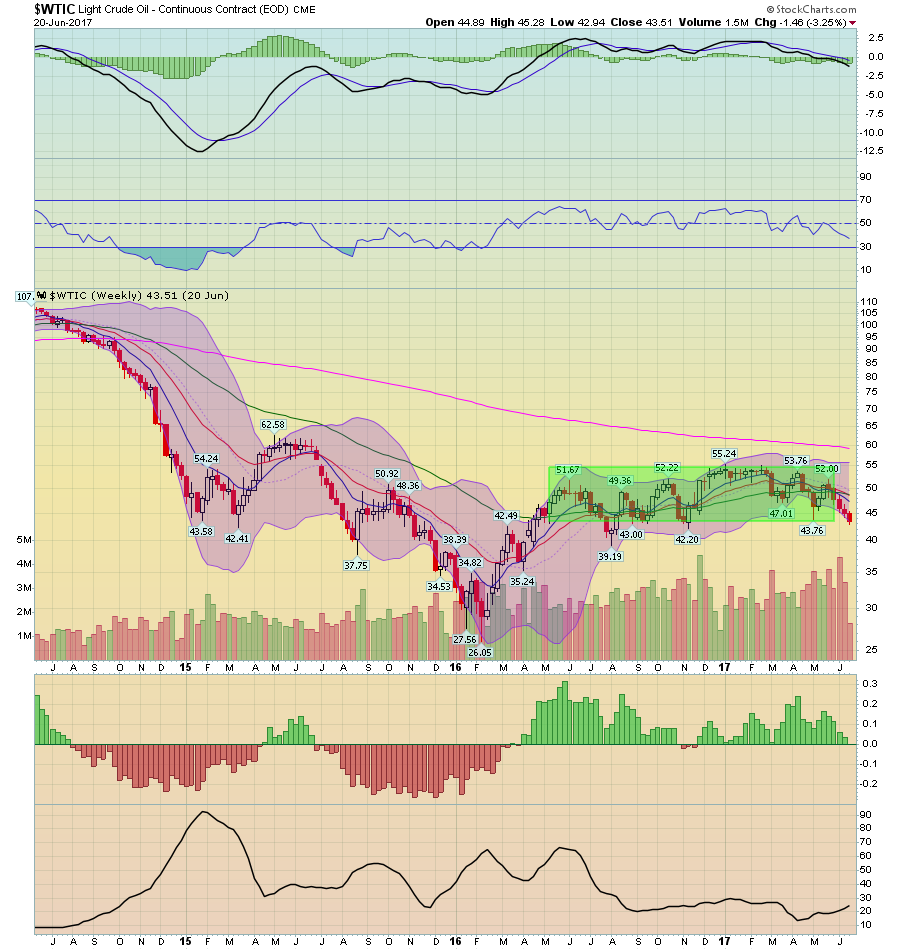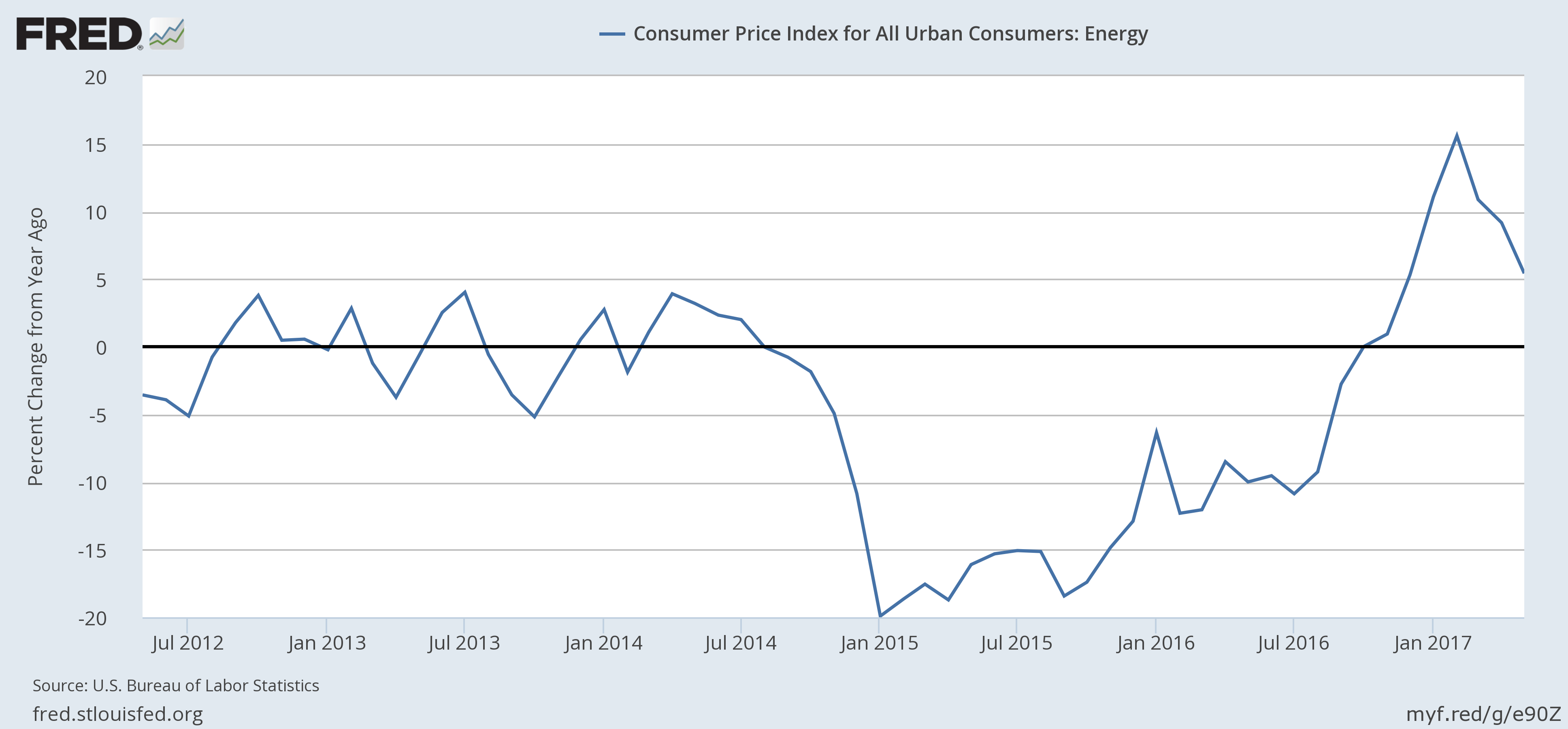For what seems like forever, the Fed has been saying they are using a 2% inflation target. Given this expansion’s weak growth, this seems to be a fair and appropriate number.
But intuition can be deceiving. The San Francisco Federal Reserve has issued several reports showing the natural rate of interest to be right around 0%—which tells us the natural rate of inflation is probably below 2%. Despite an unemployment rate below 5%, wage growth is also weak. While this means the Phillips curve is at best very flat, it also means inflation expectations on the part of employees and employers are very low.
And recent research argues that the rise of global value chains also helps to contain inflation. Here, I will argue two other economic developments—weak energy prices and the development of technology—are also containing inflation. The sum total of all this information is clear: the Fed needs to rethink its 2% inflation target.
Energy Prices
The following graph of West Texas Intermediate Crude shows that energy prices are contained:

WTIC has traded between the upper 30s and lower 50s for the better part of year. Before that, prices dropped as OPEC opened the production spigots in an effort to undercut the U.S. fracking market – a tactic that was originally successful. But over the last few years, frackers' breakeven point has declined:
After falling in 2015 and 2016, US shale oil production is tipped by the US Energy Information Administration to hit a record next month of 5.475m barrels a day — surpassing the peak hit two years ago before the full force of the price slump was felt.
The young industry has shown it can squeeze down costs and now compete when prices are near $50 a barrel.
In addition, Libya and Nigeria have also increased production, lessening the impact of OPEC’s cuts.
The excess supply has contained energy prices, which are now dropping sharply:

It’s possible the energy component of CPI will turn negative Y/Y within the next 6-9 months. This would, in turn, negatively impact prices.
The Amazon Effect:
This theory was recently advanced by Chicago Fed President Evans, who said:
Evans, a voter on the Federal Open Market Committee this year who supported its decision to raise interest rates last week, says he is less confident than most of his colleagues that inflation will soon rise to their 2 percent target.
A big reason for his ambivalence: Deflationary competitive pressures could have become more important for the overall trend in prices than the so-called Phillips Curve relationship, which links inflation to the state of the labor market. That model, coined almost 60 years ago, is the basis for the Fed’s outlook for continued gradual rate increases.
“We know that technology is disruptive. It’s changing a number of business models that used to be very successful, and you have to wonder if certain economic actors can continue to maintain their price margins, or if they are under threat from additional competition,” he said. “And that could be an undercurrent for holding back inflation.”
To my knowledge, there is no study on this effect. But that doesn’t mean it’s not real. Consider how quickly and efficiently consumers can investigate prices. They typically start online – probably at Amazon (NASDAQ:AMZN) or another internet based retailer – where prices are already low. They can then order the product online, bypassing the brick and mortar retailer. Or consider the smart phone app that allows a consumer to scan a bar code at a store and then determine if a retailer close to that location has that product at a lower price. The consumer's ability to thoroughly investigate prices is a big reason why large retailers like Best Buy (NYSE:BBY)—whose annual gross income has declined since 2012—are in trouble. And it also supports Evans’ contention that technology’s disruptive impact is limiting companies' pricing power.
Recently, a group of economists wrote an open letter to the Federal Reserve, asking them to reconsider their 2% inflation target. The letter was well-reasoned and presented. Most importantly, they were right – the Fed desperately needs to reconsider their inflation target. Because the current data indicates prices will be contained for some time.
